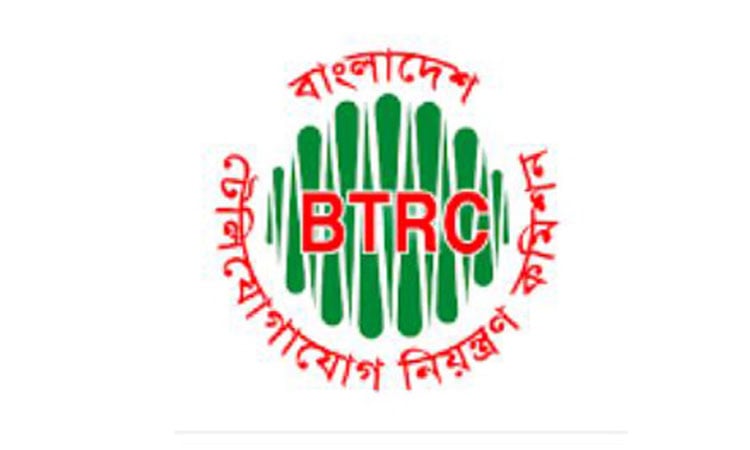News Flash
News Flash

DHAKA, Oct 29, 2025 (BSS)- All unauthorised mobile phones will be blocked from December 16 as the Bangladesh Telecommunication Regulatory Commission (BTRC) launches the National Equipment Identity Register (NEIR) to curb illegal handsets, prevent digital fraud, and boost local phone manufacturing.
Under this system, only authorised and legally imported mobile phones will be allowed to operate on telecom networks, ensuring that customers receive reliable and high-quality services.
Illegal or cloned IMEI handsets will be automatically disconnected from mobile networks after a grace period, preventing them from being used in Bangladesh.
“Inconsistencies in various government databases often make it difficult for law enforcement agencies to combat crime effectively,” Faiz Ahmad Taiyeb, Special Assistant to the Chief Adviser on Postal Telecommunications and Information Technology, told a press conference today at BTRC office at Agargaon in the capital.
A 2024 Bangladesh Bank report revealed that around 73 percent of digital fraud cases in the country originate from illegal devices and SIM cards, he said, expressing hope that the introduction of NEIR would significantly reduce such fraudulent activities.
Faiz Ahmad Taiyeb noted that the government loses approximately Taka 500 crore in revenue every year due to illegal mobile phone imports.
“NEIR system is not just a technological innovation but also a critical step toward ensuring state and consumer security as the use of cloned SIMs and devices has often facilitated fraud in mobile financial transactions,” he said.
BTRC Chairman Major General (Retd.) Md Emdad Ul Bari said, “Once NEIR is implemented, it will be easier to identify both mobile handsets and SIM cards, which will enhance monitoring and transparency across the telecom network.”
He said guidelines are being prepared in line with the existing telecom network policy and that the commission is working to encourage the use of smartphones, as about 38 percent of mobile users in the country still rely on feature phones.
“Once NEIR becomes operational, local handset manufacturers will be able to offer devices at competitive prices,” he added.
BTRC’s Spectrum Division Director General Brigadier General Md Aminul Haque said the absence of NEIR has caused the government to lose significant revenue each year.
“Under the new system, any new handset connected to a network will initially remain active while its validity is verified through NEIR. If the handset is found to be legal, it will remain registered automatically; if illegal, the customer will be notified via SMS and given a one-month grace period before the device is disconnected from the network,” he added.
Haque added that individuals who legally purchase or receive mobile phones from abroad can keep their devices active by completing a special registration through the NEIR portal at neir.btrc.gov.bd, submitting the required documents such as passport, visa, and purchase receipts.
Zakeria Shahid, President of the Mobile Industry Owners Association of Bangladesh (MIOB), thanked BTRC for taking this initiative and said local handset manufacturers are now capable of meeting domestic demand and will soon be able to export their products abroad.
Lt. Col. (Retd.) Mohammad Zulfiqar, Secretary General of the Association of Mobile Telecom Operators of Bangladesh (AMTOB), said that mobile operators are fully committed to implementing NEIR and called for collective efforts to make the public aware of its benefits.
Through the introduction of NEIR, BTRC aims to ensure that only approved and quality-assured handsets operate on national networks, significantly reducing digital fraud, theft, and illegal handset circulation while strengthening Bangladesh’s telecommunication security and revenue system.
Customers will be able to verify the legality of their devices by sending an SMS in the format “KYD [space] IMEI number” to 16002 or by dialing *16161#.
For further assistance, consumers can visit neir.btrc.gov.bd, contact their respective mobile operator’s customer care center, or call BTRC’s helpline number 100.